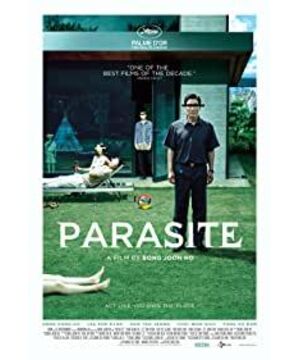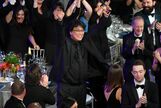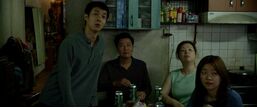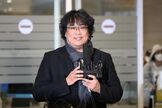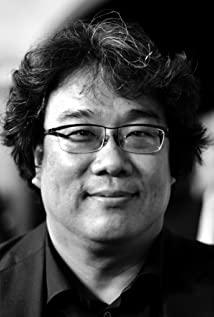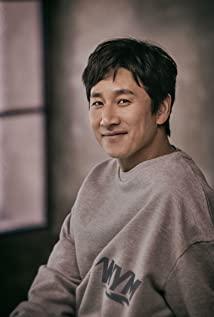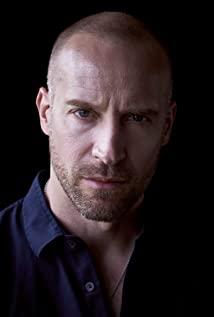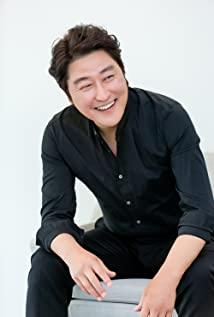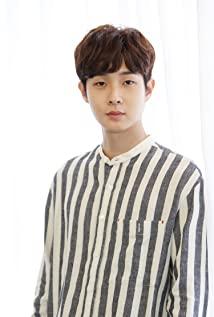Text|Three thousand years old
The film "Parasite" at the 72nd Cannes Palme d'Or Awards finally came out. Despite all the resistance, it could not stop the enthusiasm of Chinese movie fans.
Quite a few movie fans should have tried it, it doesn't matter what way it is. I want to buy a ticket. Did you give it a chance?
Of the several films that have entered the main competition, the only ones that can be seen in China are "Pain and Glory" and "Parasite". It doesn't matter whether this Palme d'Or is worth it, it is over.
The film "Parasite" directed by Bong Joon-ho is the first Palme d'Or award in the history of Korean film, 26 years after China won the first award. It is an objective fact that the quantitative performance of Korean films in the “three major” film festivals is not as good as that of Chinese-language films.
We cannot be regarded as the capital to be proud of, and the "three big" is not the only measure. All aspects have shown that the Korean film market is superior to mainland films, and this is not only reflected in the film system.
These are not the main points I want to discuss. This post will focus on the movie text itself and talk about how I feel after watching it three times.
The film is very straightforward, and the director's intentions and ideas are almost unmistakable, without compromising. According to the oriental aesthetics, the expression "still holding the pipa half-hidden" is still more inclined. I plan to use a few keywords to expand:
A window
Although the film is the standard structure of the genre film, the structure can achieve end-to-end symmetry. The symmetry in form and the contrast in physics complement each other, revealing the differences in class and culture, and depicting them in subtle ways.
Jin Ji Ze, Zhong Sook, Jin Ji Woo, and Jin Ji Ting live in a semi-basement. These pieces of glass are their main source of light. An obvious geographical gap, standing in front of the window and looking up, can only see the part below the knees of others.
The beginning and the end of the film use the same scene to achieve symmetry, and there are also differences in symmetry. At the beginning of the film, the sun is mild and bright; at the end of the film, heavy snow is flying, dark and cold.
Geographical gap and helplessness in life, the mental state of the Kim Ki-zek family is huddled and cramped. They often encounter drunks peeing in the area where they live. The two drunks peeing are definitely not idle pens, and it can better bring out the current living conditions of the family.
A family of four is not blessed to enjoy the large floor-to-ceiling windows of President Park's ample, spacious and well-lit home. The short gathering was also overcast with clouds, lightning and thunder, and was unexpectedly interrupted by the former servant (Wen Guang) who suddenly visited and the family of President Park who returned midway out of the camping trip.
Their short-term "ownership" quickly smooths out the excitement and pleasure of the "class gap", which makes it easy for people to get mentally ill. It's better not to look out while lying on the edge of the well.
This sequelae harms others and harms oneself. Inferior people sometimes really have to learn from ostriches, bury their heads in the sand, out of sight and upset.
Former servant Wen Guang recalled the bits and pieces of the former owner of the house, Mr. Nangong, and enjoyed the elegance, complacency and sentiment of the outdoor light. This kind of high-end residence must be enjoyed by a talented person with poetry, temperament and pattern.
Jin Jize's family was ridiculed by Wenguang nakedly, mocking them for being cheap, lacking in self-cultivation and style, and not worthy of such an environment. Their existence is trampling and tarnishing the high-end residential land.
Don't you know that Wenguang, like Jin Jize's family, is parasitic in other people's homes, living and running like maggots. The leisure and grace that sticks to her body is also imposed, once the situation changes, the pattern will no longer be.
Maggots laugh at maggots, this is the ironiest place.
Two stones
In order to ask him to help, Min Hyuk, a classmate of Kim Ki-woo, gave their family a piece of landscape stone as a gift.
Bong Joon-ho mocked Min Hyuk badly again. He asked Kim Ki-woo for help so as not to give other classmates a chance. He coveted President Park's daughter Dohye for a long time. Min Hyuk’s family situation is much better than Kim Ki Woo, but he also wants to parasite such a wealthy family.
The reason why Min Hyuk believes that Kim Ki-woo will not "bad his good deeds" is that people in Kim Ki-woo's situation will not make any ideas about Dohui, and the motivation is not pure.
This kind of stone is called "backer stone" in China, and it has the meaning of fortune and good luck.
As it happens, Kim Ki-woo found a decent job with the help of his friend Dohyuk. Since then, the family has regarded President Park as their support.
The idea of parasitism was unfolded, and these "plans" were implemented bit by bit under the careful and rigorous deployment of a family. Soon, a family of four quickly found another social role of their own, decent and leisurely.
When they fled from President Park’s house in a hurry and embarrassment, the semi-basement was already flooded by rain. Jin Jiyu chose to take back the stone, what he had already held in his hand, he really couldn't bear to discard it.
This stone is a kind of belief, a kind of sustenance, and a magic weapon to improve the current living conditions. Jin Jiyu believes that this stone is more valuable than anything, and he only took back this one.
Alternating light and dark light, the basement filled with water, the stones soaked in the water. The stone became dark, slippery, and it seemed to be crying from such an angle, and the meaning of fortune and good luck instantly became a joke.
After seeing it three times, I still wonder about the true purpose of Kim Ki-woo holding the stone into the basement.
There are two main guesses:
One, sum up. In order to stabilize the relationship with President Park’s family, Kim Ki-woo took a gift from his classmates as a meeting ceremony (after the family was flooded, this is the only thing that can be found), and made peace with Wenguang and his wife in the basement, looking for a compromise. Solutions to eliminate potential obstacles.
2. Murder. Take the stone as a murder weapon (Take it out from the house all the way, just as a murder weapon, personally suspected), kill people and kill people, anyway, no one except their family knows the existence of this basement. Kill them and remove the stumbling block.
Judging from the before and after plots and the overall judgment, the individual still tends to the first type: seeking peace. The parents also expressed the same idea. Although the mother kicked her, she also arranged for her daughter to deliver food.
They just want to survive, not to kill. There is nothing wrong with survival itself, Jin Jiyu is also kind, choosing gentle methods to deal with it is more in line with his character.
If Kim Ki-woo takes the stone itself as a cover to dispel the other's worries, and take advantage of it to kill, it's too deep.
The last time this stone appeared in the movie, Kim Ki-woo put it under the water. The gurgling stream flows quietly.
At this time, Kim Ki-woo suddenly realized that the stone was not a patron, nor could it change anything. He and his father's plan seems to be beautiful, but the sky doesn't follow people's wishes. He still needs to be down-to-earth and run like this stream.
The stones are in the bottom of the water, trickling down, like a person's life. Don't hope for miracles and expect the help of noble people. Only by constant struggle can you have an ideal and happy life.
In other words, the dependency relationship between them and President Park's house is also very fragile. Just open a window and close it when the strong wind comes. Even if there is no episode between Wenguang and his wife, this "parasitic" relationship will still be dissolved for various reasons and is not reliable.
Three uphill and downhill
As mentioned earlier, the film pays much attention to the geographical gap. When the family of four Kim Ki-zek had a relationship with President Park's family, it was going uphill; when they were discovered, they fled in a hurry and went all the way down.
Feng Junhao combined this material gap with the human psychological gap ingeniously and closely, showing the unequal collision and friction of this class in an all-round way.
Jin Jiyu took the fake documents prepared by his sister to apply for a job, and the director arranged different scene changes to show the physical gap.
I was in the semi-basement, and I walked out of the house with an uphill slope (Picture 1), and then went to President Park’s house to show this physical altitude difference with two consecutive scene changes (Picture 2, Picture 2). 3) Enter the courtyard and arrange the stairs again (Figure 4).
Repeating this style tirelessly is to emphasize the relationship of class and social hierarchy, not only in the material and spiritual levels, but also supplemented by the geographical gap.
Jin Jiyu boarded this high-end residence step by step, the first to complete the attachment, and soon all four members of the family were in place. The director used the rapid integration of social roles to show the dramatic conflict. This is the road map for the lower class to enter the upper class, and the Jin Jiyu family walks more easily.
Facts have proved that this kind of dependency relationship can't stand the test after all. After a short joy, the family of four fled in a hurry, very embarrassed, and quickly fell into a trough.
Let's take a look at the magical effect of the director downhill. The sun is shining on the uphill road, and the rainy night is dark on the downhill road.
This passage is in sharp contrast with the uphill in terms of physical drop, coloring, and dubbing.
The rainy night flees in a hurry, like cockroaches, mice and other nocturnal creatures. The owner turns off the lights (to travel), they come out for activities, occasionally wake up at night (the owner returns unexpectedly), and suddenly become birds and beasts, sticking to the wall, padding their feet, fleeing, and rushing to the beginning of life.
All the way down.
He took a look at the edge of the well, and finally returned to the state it should have been. Feng Junhao's tirelessly piling up large paragraphs is to emphasize this gap. To make matters worse, their semi-basement was already flooded with rainwater, and they had to spend the night in the gym.
Figure 3 is a diagonal composition, and Figure 4 is a diagonal composition, making full use of scene changes and composition principles to show this embarrassment and spread the panic. Picture 1 also has a close-up of a sewer. The rain is desperately digging into the ground, which is very meaningful.
Wenguang and his wife and Kim Ki-zek’s family are of the same kind, and they have a parasitic relationship with President Park. The underground secret room where they are located has the same effect as the downhill road scene shown above.
Four details
President Park’s wife, Yeon-joo, had originally provided Kim Ki-woo with the same amount of labor remuneration as Dohyeuk, but she had put it in the envelope but removed a part of it.
He also said that prices have increased and hourly wages have been raised. The lie just opened your mouth, how hypocritical.
This is a screenshot from the movie 39'53'', telling the former owner of the house, Mr. Nangong, that the road next to it is interesting.
Of course it was intentional, and the movie "Parasite" is somewhat suspenseful like Hitchcock.
His mother Zhongshu is a retired hammer thrower, and her former honor hangs on the wall of her home. The family was flooded, and the first thing the father protected was the honor of the mother.
Bong Joon-ho asked Bae Doona to show off a Korean archery in "Han River Monster", this time it was a hammer throw. Both of these are sports that Koreans are proud of.
Odor is mentioned more than once in the movie. This is an unconcealable gap between classes.
Yanjiao took off her shoes and put her bare feet on the back of the front seat. While talking on the phone, she still smelled the smell of Driver Jin, coughed exaggeratedly, and quickly opened the window.
When Feng Junhao describes the characters, the general principles remain the same, and the small things do his utmost to ridicule.
Picture 1: Driver Kim took measures to force Wen Guang away, the former servant, and promised that Yanjiao would not tell President Park the reason for her resignation. He stretched out his hand and shook hands with Yanjiao, but was asked: Did you wash your hands?
Picture 2: In President Park’s car, Driver Kim asked: Do you love your wife? President Park was surprised at first, and then laughed embarrassingly: Of course I love her.
Picture 3: In the courtyard, at the birthday party, when Driver Kim asked President Park again if he loved his wife, President Park told him seriously and seriously that this is work and will be paid accordingly.
The above three points all express one meaning. The relationship between Kim Ki-taek's family and President Park's family is only an employment relationship. Even if they get along day and night and stay inseparable, class differences still exist, and they have not reached the level where the golden driver can have equal dialogue and heart-to-heart.
There is a gap between them, which can never be crossed.
Picture 1: President Park's nose-covering gesture, maybe he was really disgusted by the man who got out of the basement. Without this action, Driver Jin might not have stab the knife yet.
Picture 2: Some people don't understand the logic behind this knife, and feel that the sting is unreasonable. We can slowly sort out the plots before and after: First, daughter Jin Jiting was hit by a fatal knife and was dying; then the camera showed Duohui infatuated with his blood brother Jin Jiyu on his back. Driver Jin understood everything; later, his wife Zhongshu Torn with the man, he is obviously at a disadvantage and is in danger of death at any time.
A family of four fell to this point for their livelihood. Their parasitic and superior methods are disgraceful, and they are still diligent and conscientious in their work.
The employment relationship maintains the balance between classes, and President Park's family humiliated and repelled the lower class by covering their noses nervously and tirelessly talking about the smell.
After the extreme event, this balance was accidentally broken, so we have reason to believe that President Park's subtle nose-covering action killed his own life.
The family talked about kindness at President Park's house. Mother Zhongshu said: If I had money, I would also be kind. Then, he pushed aside the dog who came to eat.
In this passage, it is reminiscent of the movie "Velidia", the unequal class, the appearance of the show is also very different. "Parasite" is obviously a tribute to the local Korean film "The Second Girl", which is directed by Kim Ki-young.
In the basement, Wenguang and his wife grabbed the handle of Driver Jin's family and rode on her husband's back, taunting the South Korean leader.
This is a consistent operation of genre films, which is extraordinary but not exceptional. In addition to ridicule, the director also vilified this parasitic couple. You can make a comparison with the maid at the beginning of the movie, is it a surprise?
Wen Guang, the maid with dignified demeanor, decent behavior, and quite elegant, turned into a bully, resentful, and aspiring face at this time. Although, they are also forced.
What makes people feel even more miserable is that these two families are investment failures, and they are bent over by life. They can only "parasite" in other people's homes and curl up in the corners.
People who have the same disease should be in love with each other and support each other. Such a reversal of each other is a great irony.
The secret room in the basement of President Park’s high-end residence is a self-defense place built by the rich, claustrophobic, dim, and lonely. Above is an ample, well-lit, and open floor-to-ceiling panel, the difference between the world and the hell on the ground.
People who have been abandoned by society and curled up in the corner can only rely on this if there is no light signal to have a relationship with the outside world.
Driver Kim moved from the semi-basement to the basement secret room of President Park's house, which was actually an escalation behavior, and he plunged into the soil.
The previous semi-basement was so good that there were drunks peeing and joking in response, there was light, and the human touch was still there. The underground chamber was closed and airtight, and the police could not find it. It became an existence that was deleted from the household registration file.
The parasitic high is to let you look at the outside world on your stomach. You did not think that by this look, you got a mentally incurable disease, and you fell into hell again, and you couldn't even live in the semi-basement.
Close up of golden driver's feet.
After enduring the humiliation of "smell" under the table and "clockwise" the alternative provocation, he moved his body forward tremblingly, the light was on, and he remained motionless, like a living creature coming out of the dark.
This detail is followed by the embarrassing escape paragraph, praised, the rain filled the house, the toilet black water was forced to spray outward. When returning to the gymnasium, several overhead shots were good, with dim yellow tones, which implied the loneliness and loneliness of the characters.
Five characters
Jin Jize: In the early years of investment and entrepreneurship, he failed to lose money, and seemed to have lost confidence in life. Have driving experience, be honest and honest. Swing form, fragile. Life motto: The best plan in life is no plan.
Zhongshu: Retired hammer thrower, won the prize. Become a housewife, live in a semi-basement, and work hard. Culinary skill, female celebrity expert, amateur folding pizza box. There is huge energy in his heart, and he can kick others into the basement with one kick. Life motto: If I have money, I can also be kind.
Jin Jiyu: A high school student who studied hard but failed to get results. He failed to get into university for four years. The more frustrated he got. A rich girl in China and Italy wants to take shortcuts and paralyze the upper class. Like fantasy, self-anaesthesia, timid, and a soft spot for a stone. Life motto: It's not that I want to hold it, it's that it's always sticking to me.
Jin Jiting: Student, there is no money to make up lessons. Art talent, master of PS photo editing. Smoking, alcoholism. Good at attacking the mind and playing power. Life motto: Jessica, only daughter, Illinois, Chicago (singing).
President Park: Gao Leng, elegant, South Korean business leader, led the company's employees to occupy the New York market. With hundreds of millions of assets, there is a high-end mansion and two luxury cars: Mercedes-Benz and Land Rover. I like half Korean and half English speaking, and don't like the smell of subway. Life motto: perfect!
Yanjiao: Mrs. Kuo, hysterical, neurotic, and vanity. Does not know how to do housework and has no source of income. Life motto: Experience tells me that it is best to do this.
Duohui: Simple, cute, like to keep a diary and record my psychological feelings. There is no rhythm, no momentum, and vacillation in doing homework. The teacher who is infatuated with making up lessons, emphasizes love and righteousness, carries his elder brother on his back in times of crisis, and never abandons. Life motto: What were you thinking when you kissed me?
Duosong: Nine years old, like drawing, Indian-controlled, and understand Morse code. I have seen ghosts and tricks. Life motto: I can't sleep, over!
Wenguang (former servant): The person who has spent the longest time in a high-class mansion, he is kind-hearted, short-sighted, allergic to peaches, and has a good family management. Like to ridicule the leaders of the country, after his death was arranged an elegant tree burial. Life motto: Dear and beloved Supreme Leader Comrade Kim Jong Un.
Wenguang’s husband: In his early years, he failed to invest in an ancient cake shop in Taiwan, and his debts were high. He hid in the basement for four years. Understand the Morse code, can withstand temptation, and can withstand loneliness. Have a grateful heart, bear grudges, and be cruel. Life motto: Your North Korean joke is truly unmatched.
Min Hyuk: Classmate Jin Jiyu, with excellent academic performance, is engaged in tutoring in his spare time, and is about to study abroad. Covet the rich daughter and want to marry her. Good at planning a life route, have a long-term plan, and understand strategy. Life motto: Uncle, there is no toilet.
How does six compare with "Burning"
The film "Parasite" has polarized its reputation since the release of its resources. This is the state of attention that a film should have. If it is one-sided, it becomes a spectacle.
Different voices: The film's depiction of the upper class and the lower class is divorced from reality and far from reality. This kind of "distance" always keeps the audience unable to enter the scene. To be straightforward and direct, to specify the difference in class to the degree of wealth ownership is a secular view, not advanced.
I want to say a few words to those who hold this view. From the point of view of film tastes, I am more inclined to art films and have little interest in such commercial films. The fineness and texture of films like "Parasite" are placed in the 72-year history of Cannes, which is not a coincidence.
Feng Junhao took the path of commercial movies, combining artistic expression with popular consciousness to form a simple screen form that caters to the taste of the public. This is an advantage. He does not have the euphemistic, profoundly allegorical screen look and personal distinctive label of Li Cangdong.
Mainstream commercial films are a standardized public aesthetic. From the perspective of communication, seeking the greatest common divisor of the audience is the ultimate goal of such films. Moreover, movies are ultimately geared towards the public. The structure, design sense, camera, rhythm, plot reversal, etc. are all striving for a deep and broad vision in a limited space and time dimension.
"Parasite" and "Burning" express the same theme. In comparison, "Burning" is much more advanced. It conforms to the arrogant contempt of the upper class towards the lower class, which is more thorough, decisive, and more real and cruel. However, people who don't like "Parasite" don't necessarily like "Burning".
Unfortunately, "Burning" has no such good luck. People always remember the number one, no one remembers the second. There are as many negative salivas as there are positive reviews for this work under the spotlight. What I am after is the short-lived direct conversation of the class wrapped in a gorgeous, fancy shell.
The movie "Burning" doesn't give you a chance to talk at all, but "Parasite" does. Now it seems that giving is also a mistake, addiction, and fatal.
I just wanted to take a look at the world outside on the side of the well. Unexpectedly, I was plunged into hell again.
View more about Parasite reviews


